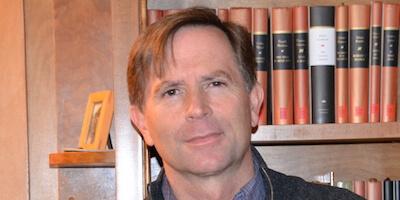Paul Dragon was appointed as the Deputy Secretary of the Vermont Agency of Human Services (AHS) in January of 2016. The Agency consists of six departments with approximately 5,000 staff whose focus is to provide comprehensive and integrated health and social services for Vermonters. He also serves on Vermont's Blue Ribbon Commission for High Quality and Affordable Child Care.
From 2012 to 2015, Paul served as the Chief Administrator of the Vermont Office of Economic Opportunity in the Department for Children and Families (DCF). In this role he led the state's efforts to address the causes and effects of poverty. Prior to that, Paul was the Reach Up Program Director in the Economic Services Division of DCF. He has also served as a Peace Corp volunteer in West Africa, Director of Vermont’s Health Care for the Homeless Program, and Integrated Services Chief of the Alcohol and Drug Abuse Program at the Vermont Department of Mental Health.
Paul lives with his wife Julie and three teenage daughters - Eleni, Ana and Katya - in Underhill, Vermont. He was happy to answer a few questions about how his personal background and academic experiences have shaped his public service aspirations.
Please explain your interest in your chosen field and what led to your educational pursuits.
"I grew up in a single parent home with a mother that could not work. The issue of poverty is personal and real to me. I want to understand how it has become so ingrained in our system and look for opportunities to root it out. I am the first in my family to go to college. Getting a doctorate in education is a milestone for me personally, but what I am most interested in is how education can help question assumptions and the status quo, and how it can be offered and accessed by people in poverty who have diminished expectations and little aspiration as I once had."
What stands out in your memory about your experience with the College of Education and Social Services at UVM?
"I have always been intimidated by academia. The professors in this program and particularly my academic advisor, Dr. Judith Aiken, were continually supportive, engaging and challenging. My high school guidance counselor once told me that I would never go to college. In my doctoral program I was continually valued, expected and told that I could succeed."
How did the doctoral program prepare you for your current position?
"The program helped me to think deeper about systemic poverty, organizational change and leadership. It coincided with leadership roles that eventually brought me to the role of Deputy Secretary of the Agency of Human Services. My dissertation was on the social construction of mental health because I am interested in how marginalized people are situated and treated by people in power."
What would you like to be doing in the future?
"I would like to be affecting systemic change that improves the lives of marginalized people. I would like to write books that explore the issue of power and powerlessness."
What is an interest you have outside of your field? How does this benefit your professional work?
"My interest is in trail running, hiking and back country skiing because that connection with nature has helped to keep me grounded personally and professionally."
